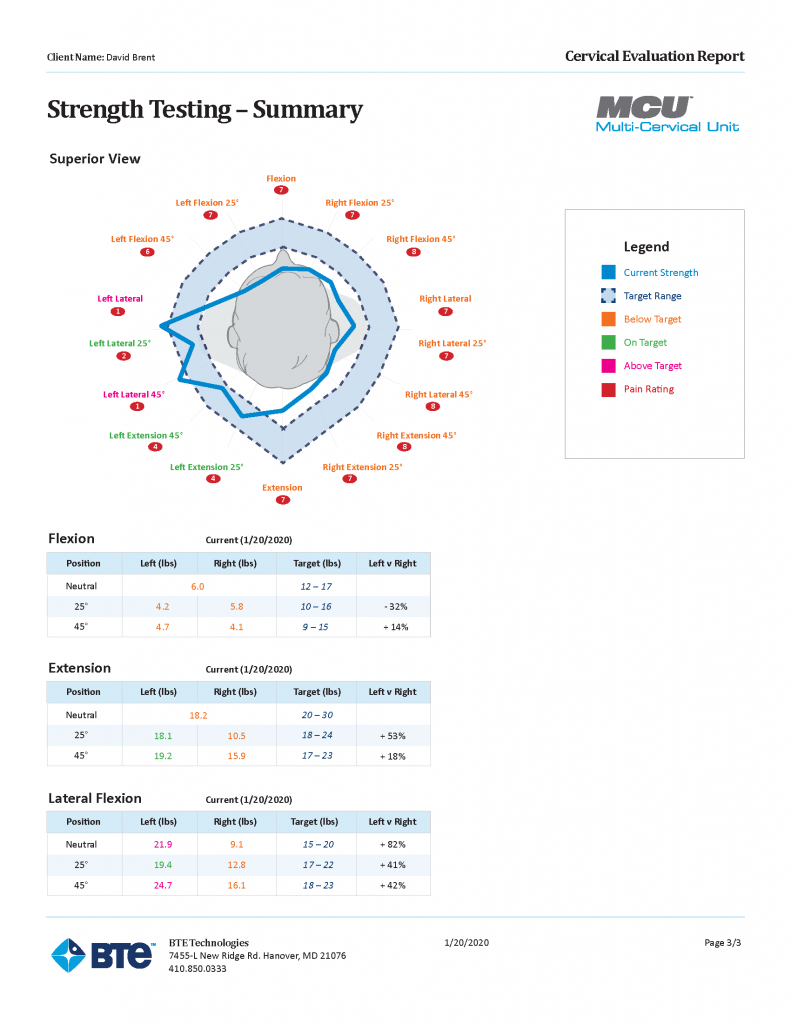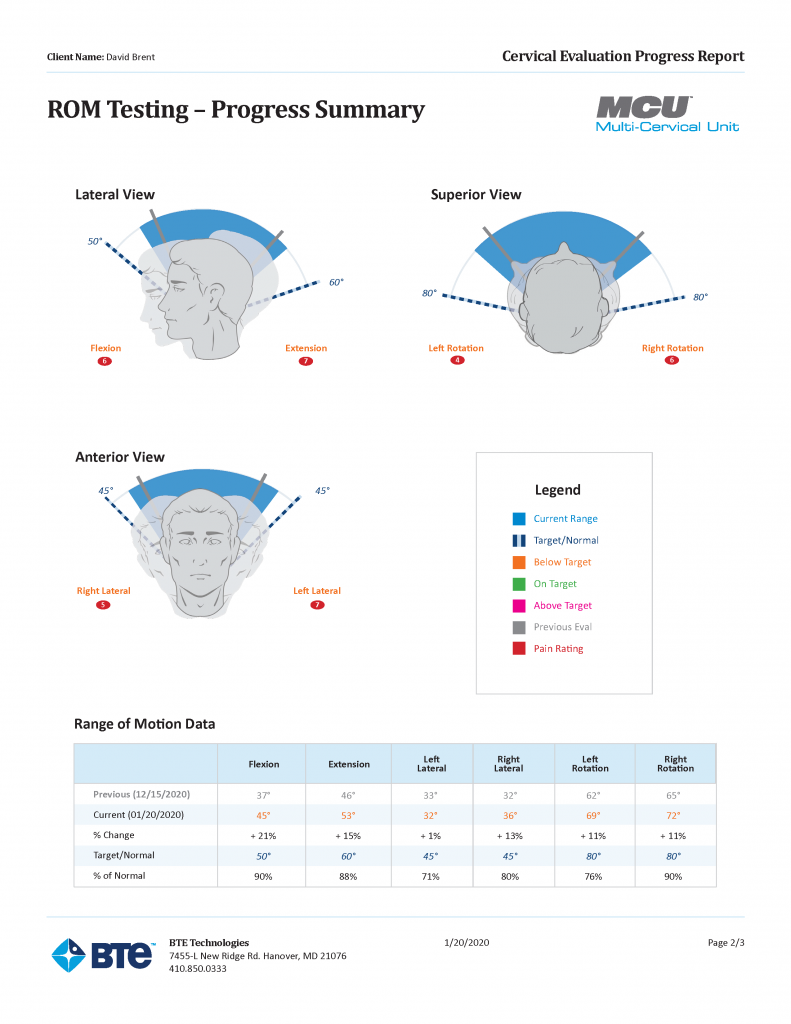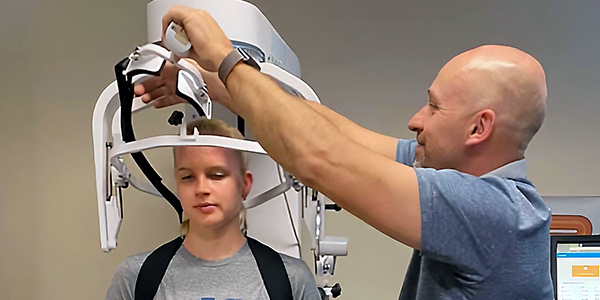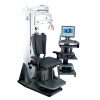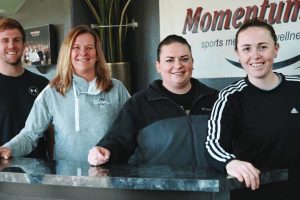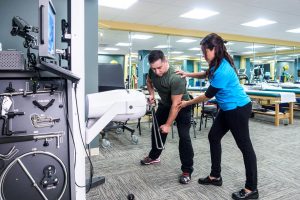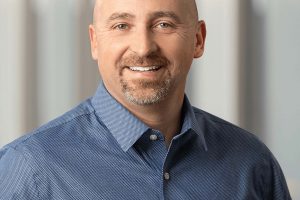
How to Power a Fully Cash-pay Clinic With Evidence-based Neck Treatment
Case StudiesDr. Edo Zylstra runs an outpatient rehab clinic like no other. At KinetaCare, every patient pays cash only, and every referral comes from word-of-mouth. That’s a business model built entirely on pure clinical success and patient enthusiasm.
Dr. Edo Zylstra runs an outpatient rehab clinic like no other. At KinetaCare, every patient pays cash only, and every referral comes from word-of-mouth. Any practice owner knows what an accomplishment that is – delivering so much value that clients pay entirely out of pocket, and producing such successful outcomes that patients refer others. That’s a business model built entirely on pure clinical success and patient enthusiasm.
In addition to Dr. Zylstra’s clinical expertise and business savvy, one thing has remained a constant part of his success over the years: the Multi-Cervical Unit (MCU). Dr. Zylstra practiced with the MCU in his very first in physical therapy clinic and has been an advocate ever since.
“If you’re looking to differentiate yourself form the competition, the MCU is one of the most important capital expenditures, and I wouldn’t practice without it… It’s the most important reason why patients get better for the long term versus just managing symptoms.” – Dr. Zylstra
Supporting a Fully Cash-pay Clinic
With cash-pay clients, it’s all about proving value in the clinic. That’s where Dr. Zylstra’s MCU program excels, in two ways. First, the exercise itself is clinically unrivaled. No other device facilitates functional, objective strengthening of the neck like the MCU.
Dr. Zylstra makes sure all treatment sessions extend beyond what a client can do on their own. In his words, simple exercises are for home use. By nature, clinic treatment should benefit the client in ways that home exercises can’t. To do otherwise would waste both the patient’s and the clinic’s time and effort. With the MCU, his clients get evidence-based neck strengthening exercises that provide clinically superior outcomes.
“The MCU gives me the ability to truly test for objective strength, objective range of motion, compare that to their symptoms and their perceived functional limitations and retrain them through that same device… It’s not just an assessment tool, it’s a training device that we can utilize for the patient to get better,” says Dr. Zylstra
Why Clients Value Cash-pay Services
Second, the MCU’s objective progress reports validate paying cash for these services. It begins with a tangible baseline evaluation that points out the neck’s deficits through objective measurement. From there on, through subsequent treatment sessions, each MCU progress report visually shows the client’s gains in neck strength and range of motion in 16 directions.
Dr. Zylstra uses these powerful progress reports to set and track clear goals for clients’ improvement. He says the objective measurement and reporting add significant value to the patient experience.
“I make sure they see improvements and objective outcomes in range of motion and strength, but also look at symptom intensity rating scale and the neck disability index and how those change,” says Dr. Zylstra. For example, check out the sample MCU progress reports below.
“I know that this device brings in more business because it is objective, it is very scientific, and it shows a commitment to a greater level of care,” he says.
Importance of Objective Measurement in Rehab
Another benefit of objective measurement in rehab is its scientific nature. It’s the only way to factually determine a patient’s progress without making assumptions. For Dr. Zylstra, it not only shows unquestionable improvement for clients – it’s a matter of principle.
“An objective test does not lie, and that helps the patient see they are truly better… If you can show objective changes, it keeps you honest in regard to your clinical integrity,” he says.
Objective measurement means not settling for guesswork when it comes to a patient’s recovery. It creates mutual accountability and shows the clinic’s commitment to making real improvements in the client’s life.
Further, clinics that rely on insurance reimbursement increasingly need to document outcomes to receive payments. Objective reports like MCU’s show indisputable progress between each session.
Neck Strengthening
According to Dr. Zylstra, neck weakness is one of the most overlooked issues involving the head, neck, and upper extremities. Strength deficiency can cause neck pain, headaches, limited range of motion, dizziness, and even upper extremity issues.
It follows that strengthening the neck provides long-term relief for chronic neck conditions. Dr. Zylstra prefers the MCU’s strengthening exercises over other methods like elastic bands for several reasons.
He says with resistance bands, “it’s hard to know how much resistance we need to add and there’s pull only in one direction so you’re not getting resistance through the whole range of motion.” Additionally, the MCU uses biomechanically natural movements, unlike elastic bands.
“It’s like going to the gym for your neck… If we can get your neck stronger, you’re going to get better,” he says.
The MCU’s strengthening benefits extend beyond the usual whiplash, concussion, chronic pain, and neck-related conditions. In fact, Dr. Zylstra says, “It is so important for this realm of patients, literally anything neck, shoulders and above including arms – you’ll use this device.”
Patient Success Stories
Many of Dr. Zylstra’s patients come to him after trying other treatment methods without success. One patient had chronic neck symptoms for 17 years. Doctors had recommended surgery, but the patient refused this option. Instead, Dr. Zylstra is treating the condition with the MCU to help them avoid surgery and get back to their normal function. He has helped other complex cases, including a spinal cord compression injury that began 40 years before his treatment.
Another client’s initial assessment showed some of the weakest neck muscles Dr. Zylstra had ever seen. The MCU’s comparative data analysis allows him to compare the clients’ baseline strength and ROM with the averages in their demographic group. This client had frequent headaches, fogginess, and dizziness. Now a few weeks into treatment, they’ve seen significant improvement in symptoms and neck strength. Most clients get substantial relief in the first six weeks.
“I can’t remember the last time I’ve had a headache, which I never thought I would say. I’m so thankful for Edo and his approach, and I’m thoroughly enjoying pain-free living!” – actual MCU patient with Dr. Zylstra
Word-of-Mouth Referrals
Patient success stories like these tend to have a snowball effect. Dr. Zylstra says, “I’ve gotten busy, fast, because people who have good results share those results with others. It’s busier than I expected to be.”
That’s a good position to be in, from a business standpoint. His clients are so happy with their neck rehab outcomes that they refer their friends and family. Those word-of-mouth referrals sustain a full patient schedule for the practice.
New Neck Pain E-book
Want more strategies for business and clinical success like this? Download the new e-book, Don’t Just Manage Neck Pain. Fix it for Good. You’ll get case studies, patient stories, and clinical research all to power your neck rehab practice. Download your neck pain e-book today!
More About Dr. Zylstra
Dr. Zylstra has over 20 years of experience in physical therapy. He began his career at a specialty pain and spine injury clinic in Colorado. After several years, he opened his first outpatient rehab clinic in 2005. After selling that practice and moving to Michigan in 2013, he opened the clinic now known as KinetaCare.
In addition to neck rehab, he is an expert in dry needling. He teaches advanced technique sacross the county with his Functional Dry Needling program. His treatment takes a holistic approach to the body’s structure and function. With this approach, he has helped a variety of patient populations, including orthopedic surgical care, athletics, wellness, chronic pain, and injury prevention of all ages.
Colleen Isaiah
TherapySpark Editor
BTE
